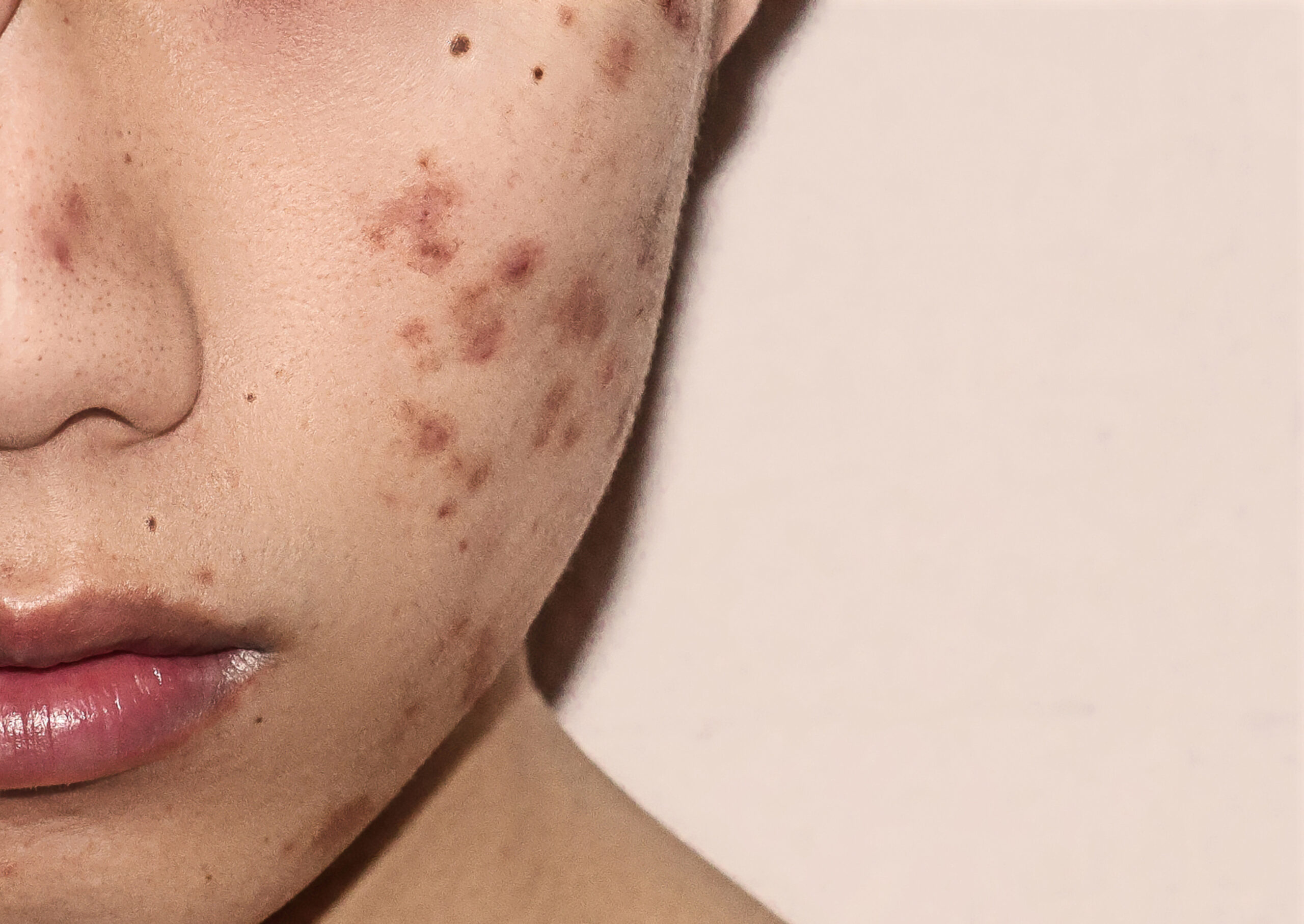If you’ve been battling acne and feel like you’ve tried every skincare product on the market without success, it might be time to look deeper—into your gut. The connection between gut health and acne has become a hot topic in both the skincare and wellness communities. Recent research shows that a healthy gut could be the missing piece in clearing up your skin.
In this blog post, we’ll explore seven science-backed connections between gut health and acne, and for each connection, we’ll include practical steps you can take to support your gut and skin health.
1. The Gut-Skin Axis: Inflammation Link
The gut-skin axis is a term used to describe the communication between your gut and your skin. When your gut is out of balance, it can lead to systemic inflammation, which is a key contributor to acne. An imbalanced gut—often due to poor diet, stress, or a lack of beneficial bacteria—can cause your immune system to overreact, leading to inflammation that shows up on your skin in the form of acne.
Action Step: Incorporate more anti-inflammatory foods into your diet like leafy greens, turmeric, and omega-3-rich fish. Avoid foods that tend to trigger inflammation, such as processed foods, refined sugars, and trans fats.
2. Leaky Gut and Acne
“Leaky gut” is a condition where the lining of your intestines becomes more permeable, allowing toxins and undigested food particles to enter the bloodstream. This triggers an immune response, which can exacerbate inflammation throughout the body—including the skin, contributing to acne.
Action Step: Add gut-healing foods to your diet. Bone broth, fermented foods (like sauerkraut and kefir), and foods high in collagen and glutamine can help repair the gut lining and reduce permeability.
3. Gut Dysbiosis and Acne
Gut dysbiosis refers to an imbalance between the good and bad bacteria in your gut. When harmful bacteria outnumber the beneficial ones, it can lead to digestive issues, systemic inflammation, and acne. Research has shown that people with acne often have gut dysbiosis, particularly a lower diversity of gut bacteria.
Action Step: Introduce probiotics into your routine. Probiotic-rich foods like yogurt, kimchi, and miso, or a quality probiotic supplement, can help restore balance to your gut microbiome and potentially reduce acne.
4. Gut Health and Hormonal Imbalance
Your gut plays a critical role in metabolizing and regulating hormones, including androgens, which are known to trigger acne. Poor gut health can disrupt hormone metabolism, leading to increased androgen levels, which often result in clogged pores and acne breakouts, especially around the jawline.
Action Step: Eat fiber-rich foods to help with hormone regulation. Fiber helps to eliminate excess hormones from the body. Foods like oats, flaxseeds, and legumes are particularly good for hormone balance and overall gut health.
5. Digestive Enzymes and Nutrient Absorption
When your gut isn’t functioning optimally, it can hinder the absorption of essential nutrients that your skin needs to stay healthy. Zinc, for example, is crucial for skin repair and immune function, while vitamins A and E are important antioxidants that protect your skin. If your gut isn’t absorbing these nutrients efficiently, it could lead to deficiencies that manifest as acne.
Action Step: Support digestion with digestive enzymes or consume foods that naturally contain them, like pineapple (which contains bromelain) and papaya (which contains papain). This can help improve nutrient absorption and benefit your skin.
6. Stress, Gut Health, and Acne
Chronic stress can wreak havoc on your gut, causing imbalances in your gut microbiome and increasing intestinal permeability (leaky gut). Stress also increases cortisol levels, which can lead to an overproduction of oil in the skin and clogged pores, further aggravating acne.
Action Step: Practice stress management techniques. Yoga, meditation, deep breathing exercises, and even just taking regular breaks can help reduce stress levels and support both your gut and skin health.
7. The Impact of Sugar and Processed Foods
Diets high in sugar and processed foods can disrupt gut health by promoting the growth of harmful bacteria. These foods also spike insulin levels, which leads to increased sebum production and inflammation, both of which can worsen acne. There’s a strong correlation between high-glycemic diets and acne prevalence.
Action Step: Cut back on sugary, processed foods and opt for whole, nutrient-dense foods instead. Focus on low-glycemic foods such as whole grains, vegetables, and lean proteins that support stable blood sugar and gut health.
Bringing It All Together: How Gut Health Impacts Your Skin
The link between gut health and acne is clear. Whether through inflammation, hormonal imbalances, or nutrient absorption issues, an unhealthy gut can significantly contribute to skin problems, including acne. While it’s tempting to reach for topical treatments, addressing the root cause—your gut—may provide longer-lasting results. By healing your gut, you can not only improve digestion and overall wellness but also enjoy clearer, healthier skin.
Here’s a quick recap of what you can do today to improve your gut health and, in turn, help combat acne:
- Incorporate anti-inflammatory foods into your diet to reduce inflammation.
- Add gut-healing foods like bone broth and fermented foods to help repair leaky gut.
- Introduce probiotics through food or supplements to balance your gut microbiome.
- Eat fiber-rich foods to support hormone regulation and improve digestion.
- Consider adding digestive enzymes to improve nutrient absorption for better skin health.
- Practice stress management techniques to keep your gut and skin balanced.
- Cut back on processed, high-sugar foods that promote harmful gut bacteria and inflammation.
By following these steps, you can improve both your gut health and skin over time. Remember, while it might not happen overnight, making small, consistent changes to your diet and lifestyle can have a significant impact on your acne.
What’s your experience with gut health and acne? Have you noticed improvements in your skin when you’ve focused on your gut health? Share your thoughts or questions in the comments below—I’d love to hear from you!
Sources:
- Bowe WP, Logan AC. Acne vulgaris, probiotics and the gut-brain-skin axis – back to the future? Gut Pathog. 2011.
- Pimentel M, Saad RJ, Long MD, Rao SSC. ACG Clinical Guideline: Small Intestinal Bacterial Overgrowth. Am J Gastroenterol. 2020.
- Woo YR, Han YS, Jung KE, et al. Association of gut microbiota with long-term acne improvement following acne treatment in adolescents. J Clin Med. 2021.
- Zhang C, Wang Y, Tan L, et al. Gut microbiota dysbiosis in acne vulgaris. Dermatol Ther. 2021.



